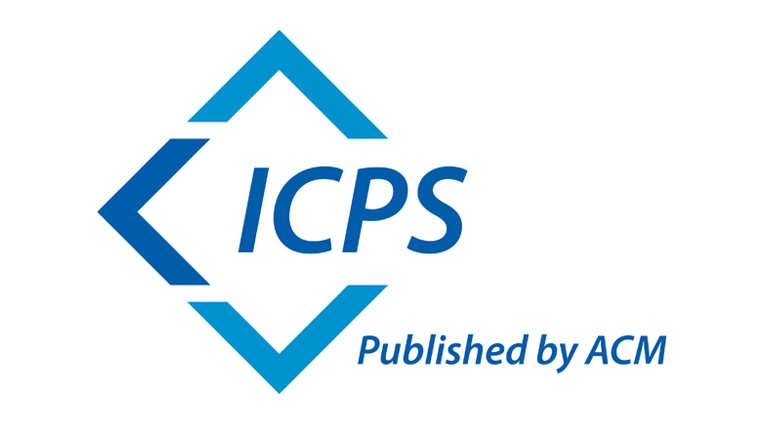Throughout history, technology has been a driver of social change. The technologies of the industrial revolution played a crucial role in shaping modern society, and society has since then continued to be shaped by technological innovations. This special session focuses on technologies that will not just change specific domains or practices for which they were designed, but that will change our life in a much broader sense. The accelerated development of the digital society and the knowledge economy generates cultural and production / consumption transformations, while mobilizing individual behaviors, deepening social gaps, this is inequality between peoples and communities, especially due to the strong incursion of the so-called exponential technologies, among which are: Artificial Intelligence, Internet of Things, Big data, Robotics, Nanotechnology, Virtual / Augmented Reality, among others.
Modern examples include digital technologies, bio- and brain technologies, and environmental and sustainable technologies. Thus, leads us to reflect carefully on the consequences and impacts that this cause to nature and society; which is why the need arises to reflect on its ethical dimension. Awareness and assessment of ethical aspects should not remain at the individual level, but should be done at a social level. It is necessary to start defining short-term strategies and reverse negative trends with regulations, ethical and legal regulations for scientific and technological creation, as well as for their practical application. Within the framework of the Interaction 20/21 Congress, this special session is presented, as a space for discussion regarding the transcendental importance of ethical aspects in the development of Interactive Systems and how new forms of HCI can significantly change our lives. The new interaction paradigms offer an opportunity, for example, for people with physical limitations, to improve the quality of life. On the other hand, new problems will appear, particularly related to privacy, security and ethics, which can potentially slow down the dissemination of new hardware and software products based on wearable (and invisible) devices. In this context, some researchers have already inquired about the relationships between interface design and legal and privacy issues; National laws are heterogeneous and not yet ready to face the current and future advances of the HCI.
The themes raised for this special session are:
- Models for the design of Interactive Systems from a focus on Human values
- User Values and Experiences
- HCI curriculum focused on ethical aspects
Submission
Authors should submit an original paper in any of the following submission categories:
- Long papers (up to 8 pages) describing original and unpublished work that provides significant results of research.
- Short papers (up to 4 pages) describing original and unpublished work in progress, with intermediate results that contribute to well-founded research.
Format
If your article has been accepted, you will receive the Camera Ready format information by email.
All submissions must be done through EasyChair: https://easychair.org/conferences/?conf=interaccion2021
Review
All contributions will be peer-reviewed by an international panel of experts. Names and affiliations of authors, acknowledgments or any other reference that may reveal the identity of the authors must be removed. Papers that do not meet these conditions may be rejected without review.
When submitting the paper, you have to choose if you would like your contribution to be reviewed by the special session Committee or also by the main track Committee. In case of acceptance by the main track committee, your contribution would be published in the ACM Digital library. For this, your contribution must be written in English.
Languages
Contributions may be submitted in Spanish or English. In any case, they must contain a summary of up to 300 words in English.

Publication of accepted contributions
- Accepted papers by the main track Committee and written in English will be published in the ACM Digital Library within its Series of International Conference Proceedings.
- Accepted papers by the special session Committee, written in English or Spanish, will be published in the conference proceedings.
Registration
At least one author of each contribution must be registered in the conference. Each registration can be associated with one contribution. For additional contributions associated with the same participant, an additional fee will be required. Registration will be available in CEDI website (https://congresocedi.es/), more details coming soon there.
Important dates
- Submission: 15th March –
16th April, 202130th April, 2021 (extended deadline) - Notification: 1st June, 2021
- Camera Ready version:
22nd June, 202130th June, 2021 (extended deadline)
Organizing Committee
- PhD Rosa Maria Gil (University of Lleida – Spain)
- PhD Gonzalo Joya (University of Malaga – Spain)
- PhD Antoni Granollers (University of Lleida – Spain)
- PhD César Collazos (University of Cauca – Colombia)
Academic Committee
- PhD Carina González (University of Laguna – Spain)
- PhD Patricia Paderewski (University of Granada – Spain)
- PhD Huizilopoztli Luna (University of Zacatecas – Mexico)
- PhD Rosanna Costaguta (National University of Santiago del Estero – Argentina)
- PhD Andres Solano (Autonomous University of the West – Colombia)
- PhD Wilson Sarmiento (Military University Nueva Granada – Colombia)
- PhD Julio Hurtado (University of Cauca – Colombia)
- PhD Carlos Chesñevar (National University of South – Argentina)
- PhD Cristian Barria (Universidad Mayor – Chile)
- PhD Yenny Méndez (Universidad Mayor – Chile)
- PhD José Luis Verdegay (University of Granada – Spain )
- PhD Marta Mena ( National Technological University – Argentina )
- PhD Horacio René Del Giorgio (National University of La Matanza – Argentina)
- PhD William García (University of Cauca – Colombia )
- PhD Rafael Calvo (Imperial College of London – United Kingdom)
- Mag. Alejandra Acuña (Universidad Mayor – Chile)
- Prof. Marta Cecilia Camacho (Institución Universitaria Colegio Mayor del Cauca – Colombia)
- Prof. Valeria Farinazzo ( Universidade Presbiteriana Mackenzie – Brazil)
- Prof. Ricardo Benitez (University of Cauca – Colombia)
- Prof. Jeanna Mathews (Clarkson University – USA)
- Prof. Jaime Muñoz (Autonomous University of Aguascalientes – Mexico)
- PhD Alicia Carrión-Plaza (Sheffield Hallam University – United Kingdom)
